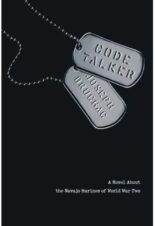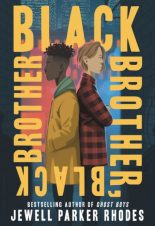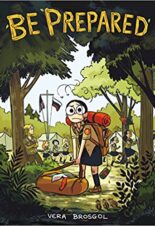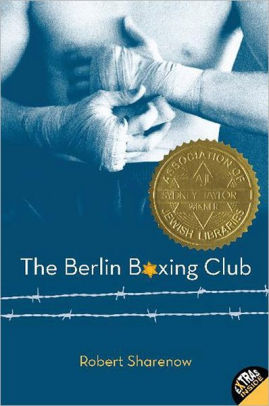
Buy This Book
“Politicians come and go, but art—art endures,” Sigmund Stern. —The Berlin Boxing Club
The Berlin Boxing Club
by Robert Sharenow
AR Test
13+
Score
5.9
404
Karl Stern is Jewish in heritage only. No one in his family practices and Karl doesn’t even see himself as Jewish. However, in Nazi Germany, Karl is Jewish, whether he or his family practice the religion. Despite this fact, Karl’s concerns are less about the Nazis and more about becoming a cartoonist, flirting with his neighbor Greta Hauser, and learning how to box from his father’s friend, the great Max Schmeling. But as the restrictions tighten around Jewish people, Karl must learn what it means to be a man, to be Jewish, and to be strong.
Although The Berlin Boxing Club is set in Nazi Germany and has a Jewish protagonist, the events lead up to Kristallnacht, or night of the broken glass, instead of describing a concentration camp. Although the reader will be familiar with the Holocaust, the characters do not know what’s to come. The historical events, like the laws passed against Jewish people, did actually happen, and the reader gets to experience discrimination and hatred through Karl’s eyes. As a form of escapism, Karl draws cartoons that depict him and his sister fleeing the bullies in their lives. These cartoons appear throughout the book and help them keep up hope, even when the situation is dire.
The Berlin Boxing Club contains some characters who are real historical figures. Most prominently featured is Max Schmeling, who was a real German boxer who lost in a historic fight against African American boxer Joe Louis. Although Schmeling was beloved in Germany before this event, his loss failed to prove Hitler’s assertion that the so-called “German race” was superior. This loss helped move Schmeling out of the spotlight. Most importantly, Schmeling historically helped hide two Jewish children. Schmeling’s history is closely tied with Karl and his family, and it is a clever way of mixing fiction with historical facts. It should be noted that Karl and his family are fictional.
The main theme shows Karl’s evolving understanding of manhood. Karl desperately wants to be a boxer because he hates getting beaten up at school, and he would like to be strong to defend himself and exact revenge against his bullies. At the beginning of the book, Karl ties manhood to physical prowess, causing him to knock heads with other characters. Then, Karl meets his father’s friend, the Countess, who is a man dressed as a woman who lives with his male partner. Initially, Karl reacts very negatively towards both of them. But as the story progresses, Karl learns that the Countess fought in the Great War, and he eventually risks his own safety to help hide Karl and his sister. Through characters like the Countess, Karl unpacks his negative baggage around masculinity and learns that courage and strength come in more forms than just physical.
The Berlin Boxing Club is sometimes upsetting due to the events that took place in Nazi Germany and due to Karl’s own internalized issues that stem from damaging propaganda about Jewish people, women, and homosexuality. Karl’s personal journey shows that he can unlearn those terrible things that he thought were true, and that people are far more complicated than Karl gives them credit for. Readers who have already read other fictionalized and real accounts of life from Jewish people under Nazi rule will find that The Berlin Boxing Club is a change of pace, and they may enjoy the different perspectives that the book brings to the conversation. As Karl unpacks his own preconceived ideas, The Berlin Boxing Club is also worth unraveling to find its heart.
Sexual Content
- Item number three on Karl’s list of biggest concerns in his life is, “Getting inside Greta Hauser’s pants and having her find her way into mine.” Karl mentions that he “was also obsessed with the recently bloomed chest of Greta Hauser, who lived with her family in [Karl’s] apartment building.” Karl mentions Greta’s breasts several times.
- Karl talks about how he finds abstract art difficult to digest. He says that he prefers “paintings and drawings of whores, exposing themselves to men on the street and in brothels.”
- In pursuit of a flyer about one of his father’s artists, Karl finds an ad lying on the floor that he describes as a “sexy message.” It reads, “Berlin is still hot ladies—You just have to look in the right cracks. The countess has just what you’ve been waiting for . . . ” An “ink smear” prevents Karl from reading the rest of the page.
- The building superintendent of Karl’s apartment reads a Nazi tabloid. Karl swipes his copies “because of the pinups, not because of the Nazi propaganda.”
- On his morning run, Karl passes a “weary prostitute walking home from a long night.”
- Greta kisses Karl in the furnace room. Karl describes how “she wrapped her arms around me, rubbing the back of my neck. Goosebumps spread down my spine, and our kisses became more intense as she pressed her body against mine, so close that I could feel the pulse of my heart beating against hers.”
- The apartment superintendent catches Karl and Greta kissing. As Greta leaves, he says to Karl, “Hope she tasted good, Stern. I’ve had my eye on that for a long time.” Karl and Greta are 14 and 15, respectively.
Violence
- To “prove” that Karl is Jewish and humiliate him, three of Karl’s classmates pull down his pants to show that he is circumcised. Karl describes, “Franz roughly unbuckled my belt and unbuckled my trousers . . . my penis bobbed in front of them in all of its circumcised glory.”
- The boys who humiliate Karl then fight him, though Karl wants no part of any physical confrontation. One boy punched him several times, “catching me on the edge of my chin and sending my head snapping back. More laughter. Franz (the one boy) then threw several punches at my face, landing on my eye and the side of my mouth. My top lip caught on the corner of my right canine tooth, and blood gushed out of my mouth and dribbled down my chin, eliciting more howls.”
- When the boys hear a teacher’s voice from down the hallway, they shove Karl down the stairs. Karl says, “I fell hard against the side of the stairwell, knocking my face against the metal handrail as I went down. I slid down a few steps until I came to a stop face-first on the landing.” One of his teeth gets knocked out.
- When Karl, his father, and his sister come home one night, they find Uncle Karl “bending over the sink with his bare ass hanging in the air. A small dark bloody hole had punctured his left buttock, which my mother was probing with long tweezers.” The adults won’t tell Karl or Hildy what happened, though it is implied that it has something to do with the political climate exacerbated by Hitler.
- Karl wants to know what happened to Uncle Jakob when they find that one of his butt cheeks has been punctured in an altercation. Uncle Jakob jokes that “One of [Jakob’s] girlfriends found out about one of [his] other girlfriends, and the next thing [he] knew [he] had a hole in [his] Hintern [butt].”
- Karl knows some things about Uncle Jakob, including that “Uncle Jakob was a member of an underground Communist group that was trying to organize against the Nazis.” From that, Karl guesses that Uncle Jakob “was part of a secret meeting that had been broken up by the Gestapo and that he’d gotten shot while he fled the scene.”
- The boys in the Hitler Youth continue to harass Karl at school. One day they “grabbed [him] by the arms and pulled [him] back, pinning [his] arms behind [him]” so he couldn’t escape.
- The boys in the Hitler Youth have a new initiation for their members, that requires they “baptize a Jew.” They grab Karl and plunge his head into a toilet in the school bathroom. Karl describes, “I quickly held my breath as I felt my hair and top of my face plunge into the water.”
- Karl is upset when Max hasn’t come to get him for boxing lessons. Karl imagines in his “most exaggerated fantasy . . . becoming a heavyweight contender and defeating Schmeling himself, with [Karl’s] long arms snapping off a series of rapid-fire punches.”
- When their mom won’t respond, Karl and Hildy break into the bathroom. Upset about having to let the housekeeper go, their mom falls asleep in the bathtub and it seems that she has come close to drowning. Karl describes how “she choked and gasped as water went up her nose.”
- Karl learns how to box from Max Schmeling, who was a real professional boxer in Germany in the 1930s. Boxing is a violent sport, and Karl gets beaten up regularly during training. Max says about boxing, “There’s an art to boxing and plenty of skills to learn, but at the end of the day, boxing is just fighting, plain and simple.”
- Karl describes what it’s like landing his first punch in a spar. Karl narrates, “The punch had mass and weight, and a wonderful electric thrill ran down my hand and across my body as I sensed his muscles tighten.”
- Neblig, one of Karl’s friends at the boxing gym, reveals that he is blind in one eye because some other boys tried to beat him up. He also has a stutter, which comes through his dialogue. He says, “I held th-th-them off good. But then one of them hit me in the eye, and it almost p-p-p-popped right out.”
- Karl reads a profile in a magazine about the Jewish American boxer Barney Ross. The magazine says that Ross’s father “was killed during an armed robbery.”
- Uncle Jakob is arrested because his “political group doesn’t agree with the Nazis . . . They took him to a concentration camp in a place called Dachau.” The family only hears “rumors of torture and murder in the camps,” but at this point Karl’s family is unsure.
- After Uncle Jakob’s arrest, Karl’s parents have a loud fight about leaving Germany. Karl describes the scene. Karl’s father “kicked the suitcase so it slid into my mother’s leg with a dull thud. She grabbed her shin in pain where the suitcase had struck her. ‘Goddamn you!’ she screamed. She picked up the suitcase and hurled it toward my father. He ducked out of the way, but it struck him on the shoulder and then bounced against the wall.”
- Karl and the few other Jewish students are expelled from their school because of the implementation of the Nuremburg laws (which barred Jewish people from doing a host of activities and jobs, and defined who was “a Jew”). Afterward, some of the boys at school run to beat up Karl and the others. Karl is faster than Benjamin, another Jewish student, and Karl looks back to see a student “grab [Benjamin] by the back of his jacket and swing him to the ground . . . he was completely covered by the kicking and punching bodies of the other boys.”
- Bertram Heigel (the Countess) tells Karl about his experience in the First World War with Karl’s father, who had saved Heigel’s life. Heigel notes, “Your father had already made it and was returning fire to give us cover when a mustard gas cloud swept over us . . . We had lost our masks during the retreat, and I started gagging as the gas hit the back of my throat.” Karl’s father pulls them from the trenches. This description lasts for a couple of pages.
- Karl’s apartment superintendent ambushes Karl and Greta’s meet up one night, and he grabs Greta with the intent of sexually assaulting her. He tells Karl to go away or he’ll throw Karl’s family out on the street. Karl discovered “Greta pressed up against a tree by Herr Koplek [the building superintendent].” Karl then “lunged forward and gave [Koplek] a quick shove, which sent him tumbling to the ground.”
- Koplek gets revenge by forcing Karl’s family to move out, claiming that Karl was “making sexual advances” on Greta. Although untrue, the rumor has spread, and no one can afford to believe Karl.
- Karl’s family receives word that Uncle Jakob died of “dysentery” according to the records at Dachau.
- After school, the boys from the Hitler Youth hit Hildy. They throw rotten eggs and say, “Ten points to whoever can hit the first Jewess.”
- In the news, Karl hears that “a Polish Jew living in France…had entered the German Embassy and shot and killed a German diplomat.”
- Karl and his family experience what would become known as Kristallnacht, or the night where Nazis were “attacking Jews and Jewish businesses.” Karl is badly injured by Nazis when the rioters break into the art gallery, and Karl watches as “the man plunged the piece of glass into my father’s side.” Karl’s father is alive, but his doctor friend takes Karl’s parents away so they can hide. The scenes from Kristallnacht last for several chapters, and Karl sees scenes like Nazis “kicking an elderly Jewish man” who was lying in the street.
- The Gestapo takes Karl’s father. Nothing is heard of him afterward.
Drugs and Alcohol
- Karl and his sister Hildy help serve wine at their father’s art gallery openings and exhibitions. Karl’s job was “to redistribute the wine from the full bottles into the three empty bottles and then fill up the difference with water.”
- Karl takes “a small taste from each one.” Hildy, who is eight, asks if she can try some, and Karl says, “When you’re thirteen.” Germany’s legal drinking age and drinking regulations for minors are much different than those in the United States, though this is not outright stated in the text.
- Max has a string of rules for Karl, including “no tobacco . . . no booze.”
- Karl’s father comes home one night “smelling of cigars and the peppermint-flavored liquor he preferred.”
- While listening to Schmeling’s fight with Joe Louis, Karl drinks some beer with his fellow boxers. At this point in the story, Karl is almost seventeen. Karl notes that the beer makes his “brain tingle pleasantly.”
- Karl gets drunk on beer during Schmeling’s fight. Karl says, “After an hour of steady drinking, I had to get up and relieve myself. I pushed myself up from the table, and my legs felt rubbery as I staggered into the men’s room.” He blacks out while in the men’s room.
Language
- The Nazis and Nazi-sympathizing townsfolk use slurs and negative stereotypes towards the Jewish characters. Some of Karl’s classmates call him a “dirty pig” and say, “You should’ve been honest with us . . . We might’ve wanted to borrow money from you, Jew,” and “Jews are destroying our country.”
- Profanity is fairly common throughout the book. Swear words (in both German and English) include: scheiss (shit), verdammt (damned), schwein (pig; swine), crap, ass, bastard, and retard.
- Karl says of people who practice Judaism, “I disliked Jews as much as they did. I didn’t identify with them at all . . . To me, most of the Nazi propaganda about Jews had a ring of truth to it . . . And just like Adolf Hitler, I believed they were ruining everything. Only Hitler saw the Jews as ruining Germany, while I merely saw them as threatening my standing at school with my friends.”
- Sometimes characters use exclamations like “God.” For instance, when Herr Boch finds Karl injured at the bottom of the steps, he says, “Du Lieber Gott! My God! What happened?”
- Some of the students in Karl’s class call Karl a “Red,” referring to Russian communists. One of his classmates also comments that “All the Reds are Jews anyway, aren’t they?”
- There are discussions about Hitler’s book, Mein Kampf. Much of the book is known for Hitler’s demonization of many groups of people, including Jews, LGBTQ+ folks, and many others. This book would go on to influence the Nazi party as well as much of Hitler’s regime in Germany. But The Berlin Boxing Club also discusses the parts where Hitler “specifically advocated for boxing to be part of the standard physical fitness program for all German boys.”
- The apartment superintendent of Karl’s apartment was “an avowed fan of Hitler and kept a Nazi flag pinned to the outside of his door. He loyally read the Nazi tabloid, Der Stürmer, which featured the most virulent anti-Semitic articles and cartoons.”
- At school one day, Karl notices that many of his classmates are wearing the regalia of the Hitler Youth. Karl notes, “I saw many boys wearing some sort of Nazi or Hitler Youth insignia, from buttons to belt buckles or kerchiefs around their necks . . . The Hitler Youth uniforms filled me with envy rather than fear. What boy wouldn’t want to wear a military uniform?”
- During an assembly, a teacher wearing a “green Bavarian jacket with a small enamel swastika pin” leads the students in the Nazi salute and shouts, “Heil Hitler.” Karl participates because he “doesn’t want to draw attention to [himself] for not doing it.”
- There is a lot of rhetoric against Jewish characters. For instance, the new principal at Karl’s school says that Jewish people “are the greatest threat to our fatherland.”
- In biology classes at Karl’s school, the students “received long lectures on the purity of Aryan blood versus Jewish, African, [and] Gypsy blood.”
- One of the boys in the Hitler Youth points at Karl and says, “Take a good look, boys. On the outside, he appears like us, but his blood and his cock are pure Jew.”
- Karl’s father asks Karl to make a delivery to the Countess. Karl peeks at the package and sees “a simple illustration of two people dancing . . . both of the people were men with slicked-back hair, wearing tuxedos. The caption above the image read: The Countess presents another private winter ball for the beautiful boys of Berlin.” Karl, upon seeing this, reveals that he is homophobic. He says that his father “was somehow in league with homosexuals. It was risky enough being Jewish, but associating with homosexuals would put us at an even greater risk. Even Jews didn’t like homosexuals. It was the one thing everyone seemed to agree on.”
- Karl meets the Countess, and he discovers that the Countess is a man dressed as a woman. Karl is not sure how to address him, and thinks to himself, “What were you supposed to call those people?”
- Karl suspects that because his father is friends with the Countess, that his father is “a homosexual.” Then Karl wonders, “Did [he] have homosexual blood in [his] veins too?”
- The girls at school call Hildy a “rotten apple” in reference to a very antisemitic book the class reads of the same name. On the cover, Karl sees the depictions of the apples. He notes, “The tree was filled with beautiful apples, except some of the apples had strange human faces with large noses and droopy eyes.” The book also praises Hitler for “cutting [Jews] out of Germany.”
- Some of the boxers at the gym discuss a new and upcoming American boxer named Joe Louis. One of the boxers thinks he’ll take the heavyweight belt in no time. To this statement, another boxer says, “A Negro champion? It won’t happen.” When someone points out that Jack Johnson, an African American boxer, had already won the belt, the other boxer responds with, “A fluke . . . Negros don’t have the brainpower to be champions.” This conversation continues for about a page. The term “Negro” is used when referring to Joe Louis and other black characters.
- Karl talks about how he makes deliveries for folks who live in the Berlin underworld— “homosexuals, Gypsies, Jews, Communists, anyone whose lifestyle or beliefs forced him or her to live in secret.”
Supernatural
- Greta sees Karl shoveling coal in the apartment basement and says, “Well, if it isn’t Vulcan at his forge.” When Karl is confused, she clarifies, “The god of fire.” She then notes the difference between Vulcan and Hephaestus, saying, “Vulcan was a Roman god . . . Hephaestus was the Greek god of fire.”
- Karl and Greta talk about mythology again in the furnace room, and this time Karl brings up the story of Pandora. Karl says, “Zeus ordered Hephaestus to create Pandora to punish mankind for stealing the secret of fire . . . Her box released all the evils of mankind—vanity, greed, envy, lust . . . ”
Spiritual Content
- Karl is Jewish, but he was “raised by an atheist father and an agnostic mother, I grew up in a secular household. I had absolutely no religious background or education.”
- Karl’s father fought in the First World War, and he hates religion and politics. He says, “I learned everything I needed to know about politics and religion during the war. They’re all worthless.”
- Karl talks about pseudoscientists “proving Hitler’s theories of racial superiority” and who were also perpetuating “medieval myths about Jews’ kidnapping Christian children and drinking their blood in strange religious rituals.”
- Greta’s family is Catholic, so her father “doesn’t want [her] talking to Lutheran boys” or Jewish boys.
- Greta tells Karl that she’ll “have to say a special prayer” for him before his first real boxing match.
- Greta confesses that “she was not sure that she believed in God at all.”
- Jewish-American boxer Barney Ross’s father was an “Orthodox rabbi.”
- Karl and Hildy’s mother sends them to attend a Jewish school since their old schools expelled them for being Jewish in the eyes of the Nuremburg laws. Karl is told on the first day that he is required to wear “a yarmulke,” or a small cap while at school even though he does not practice Judaism.
- Karl has some thoughts on attending a Jewish school. He notes, “I felt no connection to the religious Jews and didn’t believe in any of their traditions. Why should God or anyone else care if I ate a pork sausage or walked around without a hat?”
- The Jewish owner of the store where Karl buys his ink is suffering because of the laws against non-Jewish people doing business with Jewish people. He says a prayer over Karl before Karl leaves the store one day. The owner tells Karl, “That was the Tefilat HaDerech; it’s a prayer for a safe journey.”
by Alli Kestler
“Politicians come and go, but art—art endures,” Sigmund Stern. —The Berlin Boxing Club
Latest Reviews
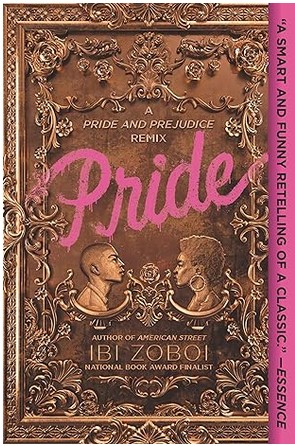
Pride: A Pride & Prejudice Remix
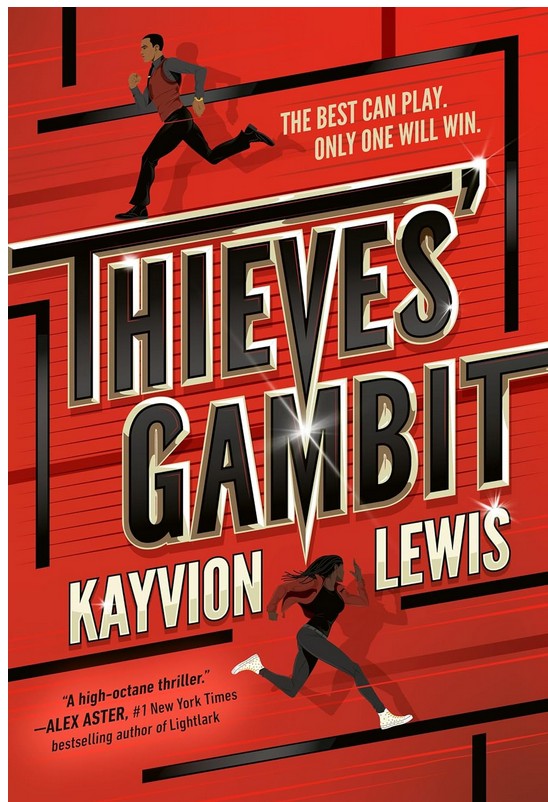
Thieves’ Gambit #1
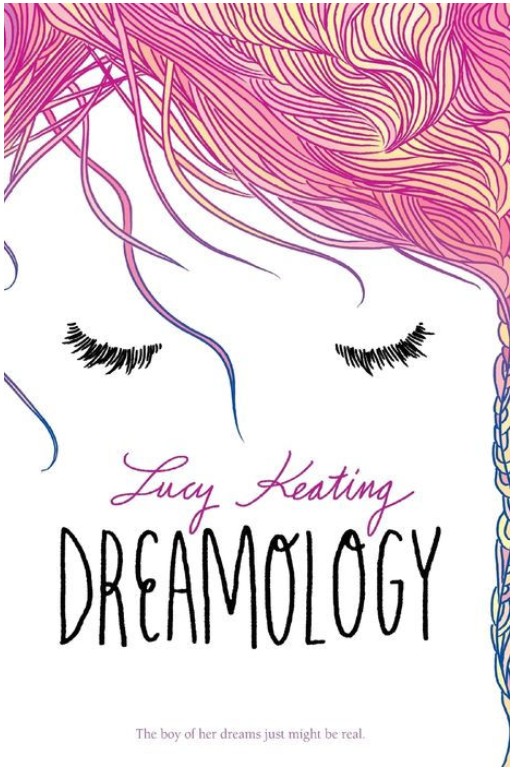
Dreamology
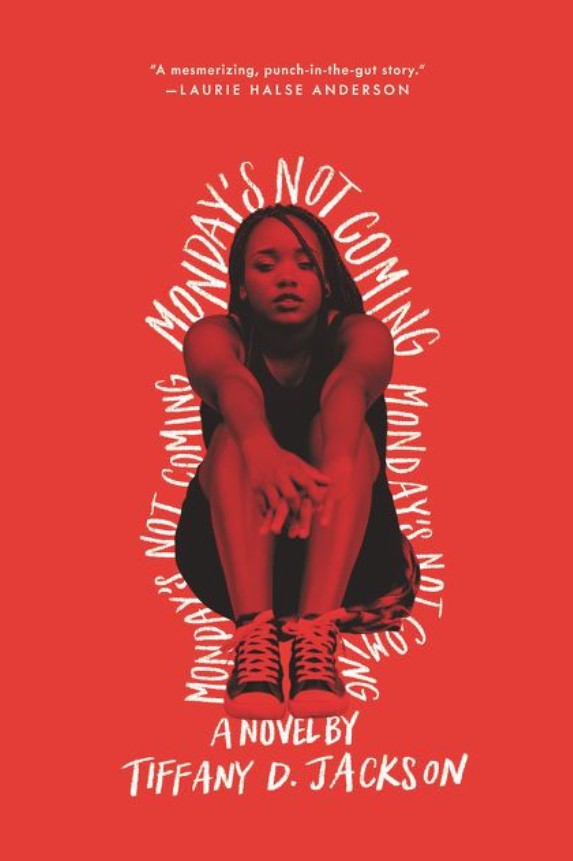
Monday’s Not Coming
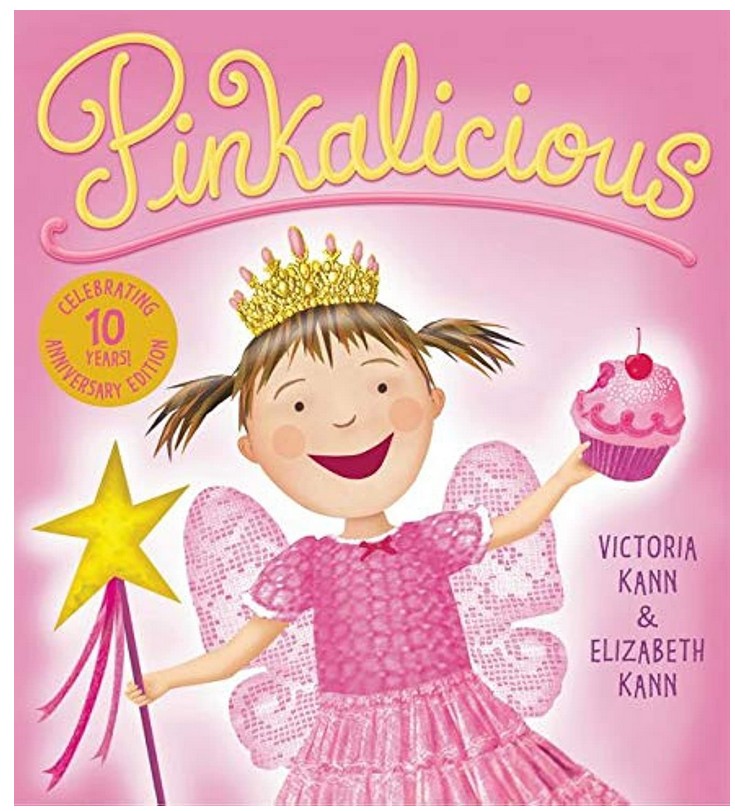
Pinkalicious

Driven

Goodbye Days

Blood of Troy

Will’s Race for Home

